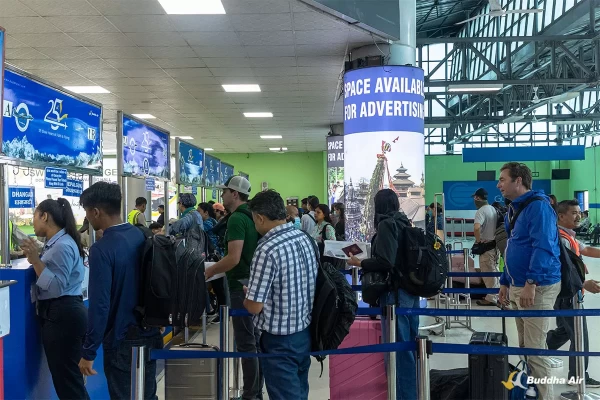
Travelling by air has become a major part of modern life, but understanding all airline baggage policies can sometimes feel overwhelming. Different airlines have different rules regarding baggage, and understanding these guidelines is a must to avoid unexpected charges or inconveniences. In this comprehensive guide, we will explain everything you need to know about airline baggage policies, from weight and size limits to airline baggage fees and allowances.
What are Airline Baggage Policies?
Airline baggage policies are the rules and regulations set by airlines to govern how passengers can transport their luggage. These policies typically cover important aspects such as the number of bags allowed, weight restrictions, size limits, and the fees associated with exceeding these limits. Whether you are travelling domestically or internationally, understanding the airline baggage policies allowance of your chosen airline comes with a hassle-free journey.
Most airlines categorize baggage into two main types: carry-on and checked baggage. Each type has specific rules that passengers must follow to ensure smooth boarding and compliance with airline regulations. These policies not only help maintain order during the boarding process but also ensure the safety and comfort of all passengers when flying with Buddha Air.
Weight and Size Limits
One of the most important aspects of airline baggage policies is understanding the weight and size limits for both carry-on and checked baggage. Airlines typically allow one carry-on bag and one personal item, such as a laptop bag or purse, to be brought into the cabin. These items must fit within specific dimensions, and be equal to or under the 5 kg weight limit for Buddha Air passengers.
Checked baggage, on the other hand, has stricter weight and size restrictions. The weight limit on checked baggage is 15 kg to 25 kg (depending on type of ticket) per person for Buddha Air. You may be required to make additional payments to carry more, i.e. the airline baggage fees.
To avoid surprises or inconvenience, always check the specific requirements of your airline before packing.
You may also read: Cabin or Carry-On Luggage Rules - What You Need to Know
International Travel Considerations
When travelling internationally, airline baggage policies can vary not only by carrier but also by destination. Many international flights offer more generous baggage allowances compared to domestic routes. However, it is essential to note that connecting flights with different airlines may have conflicting policies, leading to potential complications.
Customs regulations are another factor to consider when flying internationally. Certain items may be prohibited or require declaration upon arrival. Always review the customs guidelines of your destination country to avoid issues at the border.
For long-haul flights, airlines may allow two free checked bags for economy-class passengers, but weight and size restrictions still apply. Knowing these details can help you pack appropriately and minimize the risk of excess baggage fees.
Tips to Avoid Baggage Hassles
1. Know Your Airline’s Policies
Always review the airline baggage policies of your carrier before your trip. This will help you avoid unexpected fees and ensure compliance.
2. Weigh and Measure Your Bags
Invest in a portable luggage scale to check your bag’s weight before heading to the airport. Make sure your bags meet the size requirements as well.
3. Pack Strategically
Use packing cubes to organize your items and maximize space. Consider wearing heavier clothing items to reduce the weight of your luggage.
4. Prepay Baggage Fees
If you must carry baggage that weighs more than the limit, you can pay your way through. Airlines offer lower fees for baggage when paid online in advance. Take advantage of this option to save money.
5. Take advantage of Loyalty Programs
Frequent flyers or those with airline credit cards can often enjoy free checked bags as part of their membership benefits.
Conclusion
Having a good idea of baggage allowance when flying is such a lifesaver. You get the chance to prepare and prevent the anxiety of sudden scenarios arising in case your baggage crosses the limit. Understanding airline baggage policies, rules and planning can make your travel experience much smoother. From knowing the airline baggage policies allowance to preparing for potential airline baggage fees, being informed is the key to avoiding hassles. By following these guidelines, you can ensure a stress-free journey and focus on enjoying your much-anticipated trip.
FAQ
What are the airlines’ rules for baggage?
Airlines typically allow one carry-on bag and one personal item for free, with specific size and weight restrictions. Checked baggage may incur fees based on the number of bags and their weight. Reviewing the airline baggage policies allowance of your airline is crucial to avoid surprises. For Buddha Air, 5 kg carry-on and 15 kg to 25 kg (depending on type of ticket) checked baggage is allowed.
What are the rules for luggage bags on flights?
Rules for luggage bags vary by airline, but they generally include size and weight limits for both carry-on and checked bags. Carry-ons must fit in the overhead compartment, while checked bags must meet weight and size restrictions to avoid additional airline baggage fees.
What are the two types of baggage in airlines?
The two main types of baggage in airlines are carry-on baggage, which is taken into the cabin, and checked baggage, which is stored in the cargo hold. Each type has specific rules outlined in the airline baggage policies. Buddha Air allows 5 kg carry-on and 15 kg to 25 kg (depending on type of ticket) checked baggage for every passenger.




